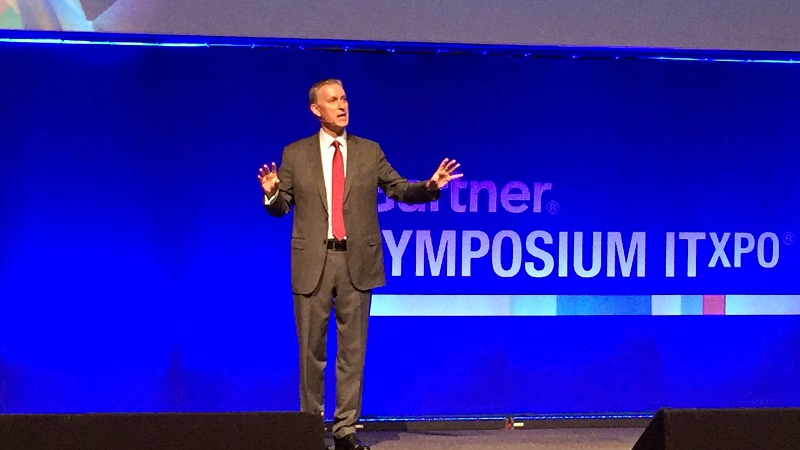Companies are creating more data now than every before, and the internet is not showing any signs of slowing down either.
Companies that haven’t had an online presence until now are creating a huge heap of data, something that has spurred on the “big data” revolution that the IT industry has been making noise about for years now.
Not familiar with the concept? Well, “big data” refers to data sets so large or complex that traditional data applications can’t actually process them fast enough.
But big data is not where the value is right now for companies, explained Peter Sondergaard, senior vice president at Gartner, even though there has been a huge movement in the IT industry to capture, analyse, dissect and monitor it.
“[Big data] will not be transformative, as anybody can store it. Good analysis of big data will be worth a bit more, but data is inherently dumb,” he said during the keynote of the annual Gartner Symposium currently happening in Cape Town.
Instead of big data, the real value for companies and business alike, will be in algorithms, Sondergaard explained. Algorithms are the clever lines of programming code that tells smart devices what to do with the data it processes.
That being the case, if you think about it, everything runs on algorithms – from Apple’s Siri and Microsoft’s Cortana, to Waze’s traffic mapping and Uber’s surge pricing. The data flows thick and fast, but it’s the algorithms in the software that inform the app what to do with it.
“Algorithms will define the way the world works very soon. It is in everything, and it is encoded in the software. Virtual personal assistants are becoming a reality, and by 2020 smart agents will facilitate 40% of interactions,” he said.
He warned that the post-app era is coming, and that companies like Google and Apple will be agents of that change, as services like Apple’s Siri are only in a prototype phase right now.
“A market for algorithms will emerge, a market for snippets of information on people. Products will be defined by the sophistication of the algorithms, and people will need to understand the ethical position that the algorithms will be taking.”
He gave examples of how algorithms will be making life or death decisions, like how cars and drones of the future will operate semi-autonomously. The algorithms involved – hard-coded rules that determine the behaviour of autonomous high-tech devices – will dictate every action, like who to arrest, where to drive and how to fly.
But with ethical implications coded into the algorithms, Sondergaard said that there will come a time when government intervention will be needed.
“Algorithms will be regulated by the government – and yes, over time agents like Google and Apple will create more agents, and robots will create more robots. Therefore, we have to get the algorithms right.”
In conclusion, Sondergaard said that dynamic algorithms are at the core of customer outcomes.
As a result, algorithms are fast becoming the hottest commodity in ICT, as cities are now starting to use data created by algorithms like Waze when it comes to city development planning.
This is most definitely not the last time we will hear about how algorithms are shaping the world, but it sure does make a lot of sense.
Big data is the process of creating huge amounts of information, but the future of companies and how people interact with everything around them will be driven by algorithms – keeping everything together and supplying the information when and how people want to consume it.
Charlie Fripp is in Cape Town at the annual Gartner Symposium as a guest of Gartner Inc.

